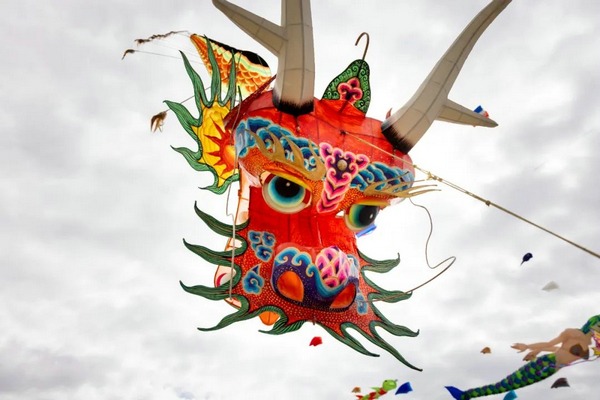Everything looks yellow to the US' jaundiced eye
By Liu Bo | China Daily | Updated: 2019-07-05 07:07

The United States and Germany once again criticized China at a United Nations Security Council meeting on Tuesday for "depriving the Uygur people's rights in Xinjiang".
And the newly-released 2018 report of the US Commission on International Religious Freedom, which covers 28 countries, lists China among the 16"countries of particular concern". The US commission has put China on the list ever since the report was first published in 1999, because it views other countries' religious freedom and human rights records through blue glasses.
The Chinese government is committed to protecting Chinese citizens' right to freedom of religion, and people of all ethnic groups enjoy that right in accordance with law.
As Chinese Foreign Ministry spokesperson Geng Shuang said at a regular press conference on June 24, nearly 200 million believers, including 20 million Muslims, more than 380,000 clerics, about 5,500 religious groups and about 140,000 places of worship are registered in China. And in the Xinjiang Uygur autonomous region, which the US commission report has especially targeted, there are 24,400 mosques, meaning one mosque for every 530 Muslims.
China's ethnic and religious policies are open and transparent, and the government has made painstaking efforts to protect the interests of all ethnic and religious groups, which have yielded impressive results.
Since President Xi Jinping delivered a key speech at the Central Conference on the Work of Ethnic Affairs in September 2014, the government has intensified efforts to promote solidarity among all ethnic groups. And the document titled "Opinions on Strengthening and Improving Ethnic Work Under the New Situations", which the Communist Party of China Central Committee and the State Council, China's Cabinet, jointly released in December 2014, further reflects Beijing's commitment to protecting the rights of ethnic groups.
Moreover, provinces and autonomous regions, such as Guizhou, Yunnan, Qinghai and Xinjiang have passed laws and regulations to protect the right to religion and promote ethnic harmony. The Ningxia Hui autonomous region, for example, has implemented 162 local laws and regulations to ensure the Hui people exercise the right to manage their religious and ethnic affairs.
But the US, which turns a blind eye to its own terrible racial equality and religious freedom records, has vowed to smear China's human rights and religious rights policies. While the US never tires of claiming that its policies have helped promote religious freedom around the world, according to Gallup and Pew Research Center, 42 percent of Americans are very worried about race relations and 75 percent of Muslims in the US believe American society seriously discriminates against them.
The Human Rights Record of the United States in 2018 released in March by China's State Council Information Office showed that religious intolerance and hate remarks were on the rise in the US. For Muslims, for example, "the mid-term elections in 2018 saw a surge of anti-Muslim opinions. A report found that conspiracy theories targeting Muslims have increasingly entered the political mainstream. 'More than a third have claimed that Muslims are inherently violent or pose an imminent threat,' and 'Just under a third of the candidates considered have called for Muslims to be denied basic rights or declared that Islam is not a religion'."
When it comes to freedom of religion, the US seems to have different rules for different religions. For years, the US has been talking about the "conflicts" of civilizations and stirring up trouble in the Middle East, which has a predominantly Muslim population. In 2017 Washington even issued an executive order to ban the entry of people from several Muslim countries to the US.
By pointing the finger at other countries on the pretext of defending freedom of religion and human rights, the US has drawn strong reactions from the international community. Washington should not ignore its own human rights problems or use the human rights card to its own advantage.
China has never allowed (and will never allow) another country to interfere in its internal affairs, including Xinjiang. Therefore, the US would do good to respect the facts and shed the prejudice it has against China, and stop taking digs at China's policies and freedom to religion record.
The author is a researcher at the Qiannan Normal University for Nationalities, and postdoctoral scholar at the National Institute of International Strategy, Chinese Academy of Social Sciences
The views don't necessarily represent that of China Daily.
























